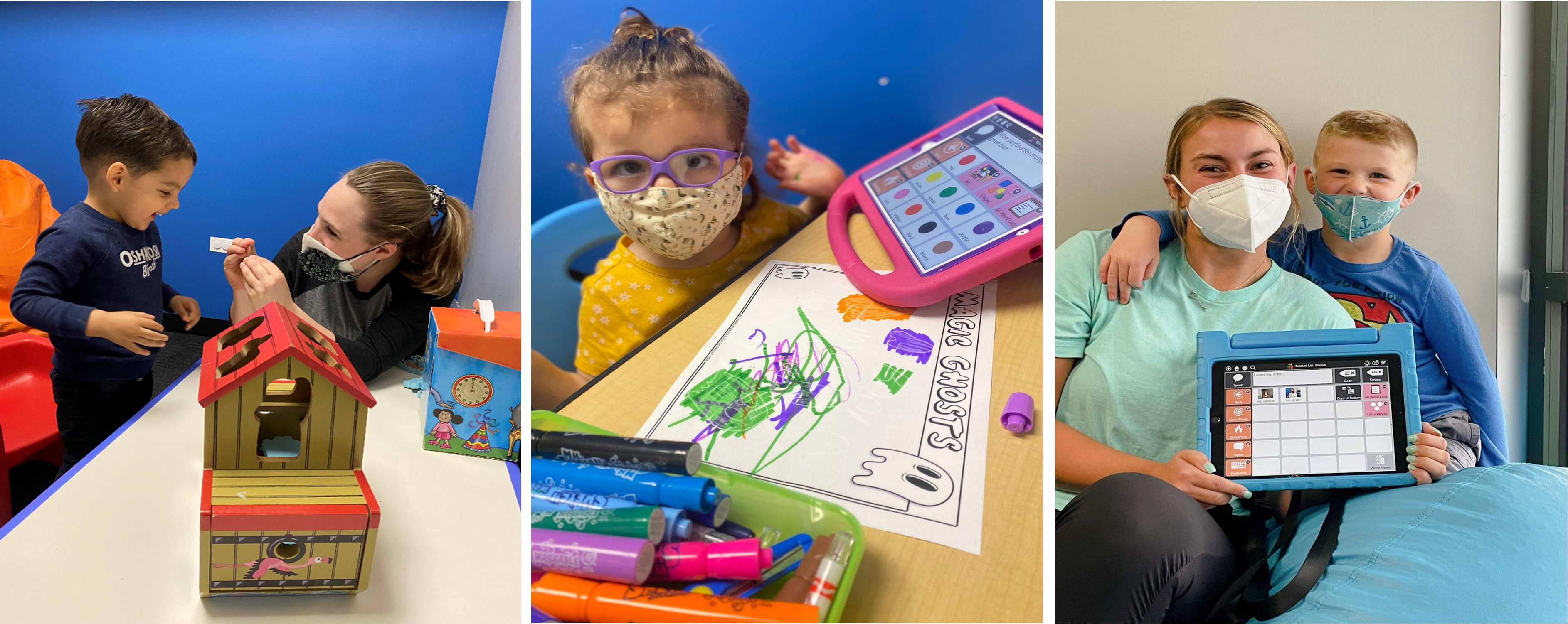Westside Children’s Therapy pediatric speech therapist experts give tips to graduating college students on what to know and expect about the career of being a Pediatric Speech Therapist.
Below, you’ll learn about the responsibilities of a pediatric SLP, reasons why the career can be tough but rewarding, and how you’re not alone in being a SLP new graduate.
It will also partly touch on the day in the life of a speech therapist and maybe help answer the question of “why should I be a pediatric speech therapist?”
- Children will develop at different rates.
Progress is not always seen quickly. Some children and diagnoses are more challenging. As a pediatric speech therapist, take a step back, see how far the child HAS come and how hard you’ve been working with them. Don’t be afraid to try new things with children.
- You will always be learning, and that is OK!
You will not know everything as a pediatric speech therapist when you start, nor will you 5-10 years down the road. You will grow as you go and will love this career as a pediatric SLP.
- You’re encouraged to go out of your comfort zone to help the children.
Every child is going to be different and you won’t know all the answers, but you are able to create strategies and support in your treatment that will encourage continued growth. Watching them grow will be the best feeling and reward there is as a pediatric speech therapist.
- You will need to be able to collaborate with the other disciplines outside of Speech Therapy.
Take the time to learn from them. Many times, kids will receive multiple therapies (i.e. OT, PT, ABA). This will make you a better SLP.
- Do not be afraid to ask questions.
Asking questions doesn’t mean you don’t know what you’re doing! It means you care about your patients.
- Keep things simple when talking to parents and/or guardians.
It is important to have the ability to explain terms and interventions to parents without complicated jargon. You want them to understand and be able to implement strategies at home.
- Be ready for days that are mentally, emotionally and physically exhausting.
Not every day is going to be easy, but there are other days when you witness your client make progress in an area they didn’t have before, and it motivates you and inspires you to keep pushing!
- Don’t be too proud to talk about your struggles.
You’re not going to be alone. Plenty of other pediatric SLPs are going through the same thing with you.
- Trial and error is good and necessary in some cases!
There are so many strategies, toys, and modeling techniques, along with the different diagnoses and speech and language skills that a child may present with. One strategy can work for one child, but not work with another child, or maybe a child needs structured tasks, while others require more play-based or child-led activities. As SLPs, it helps to be adaptive and flexible – it’s important to try different things, and see what benefits the child and clicks the most with them.
- As an SLP, you have the chance to change someone’s/their family’s life.
That feeling will be indescribable. Seeing that will help you grow and trust yourself more, beat yourself up less, overthink less, etc. You should feel proud of yourself.
Being a speech language pathologist in pediatric is a fun and fulfilling role. Westside Children’s Therapy seeks out great employees, not just good employees. We do not hire people looking for a job, we hire people looking to fulfill a calling. Our therapists have a wear-it-on-their-sleeves, see-it-on-their-face burning passion for changing kids’ lives.
If you are interested in becoming a pediatric speech therapist at Westside, be sure to check out our job listings page to stay up to date on open positions!







